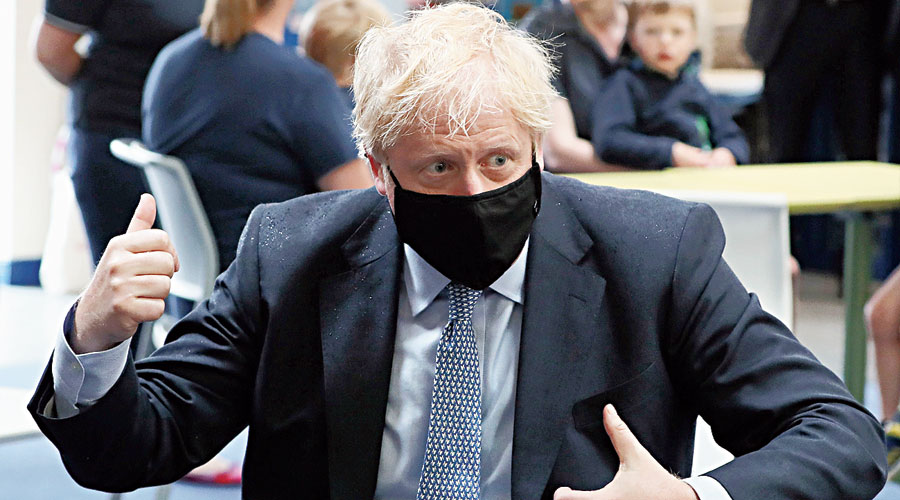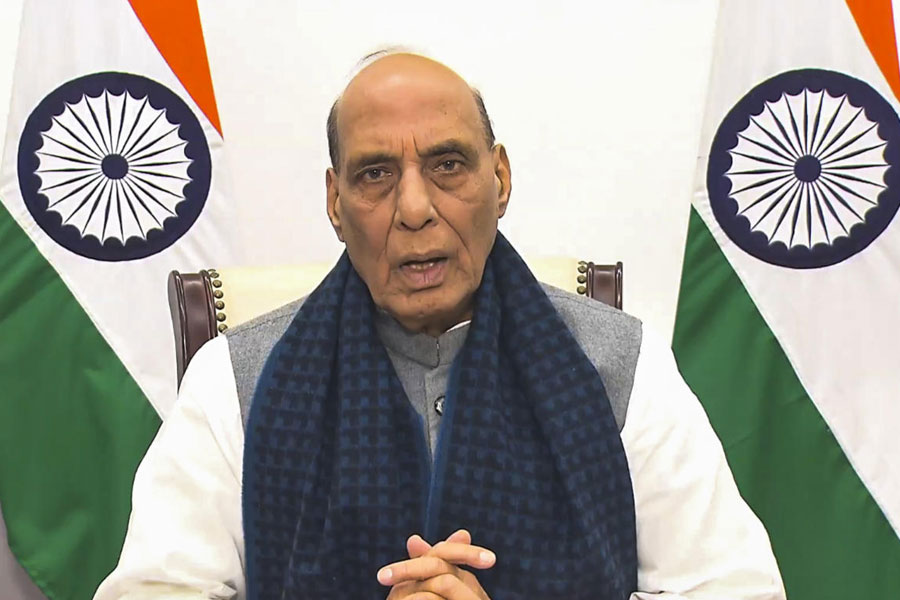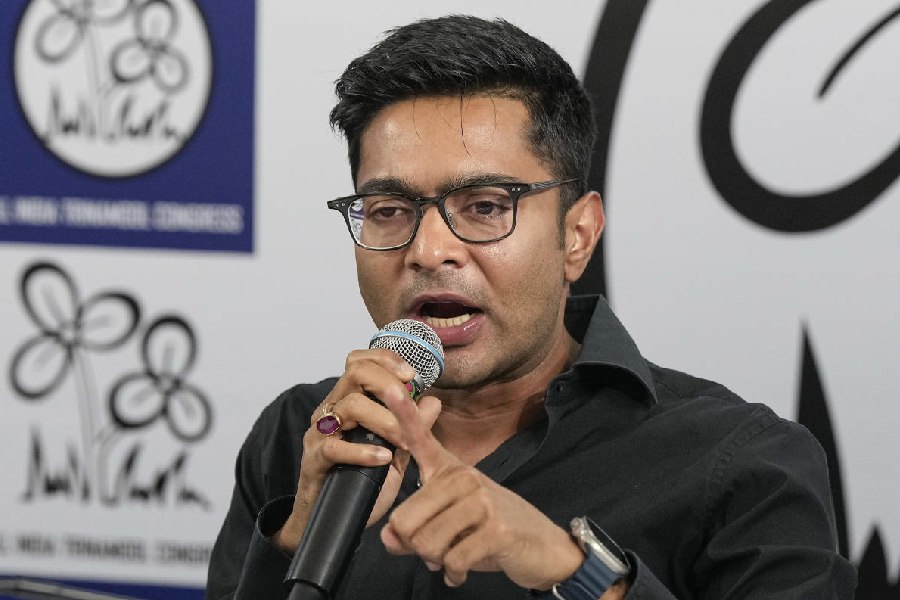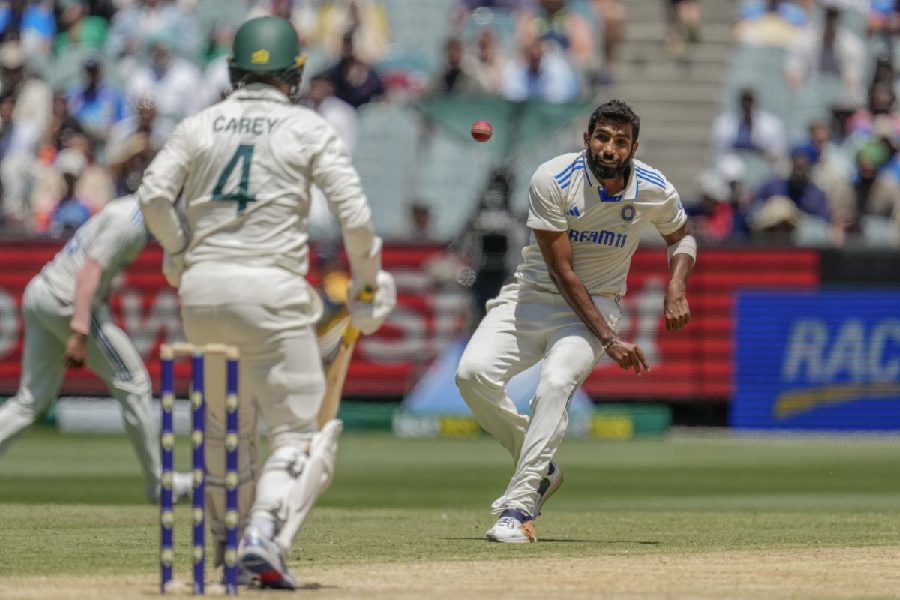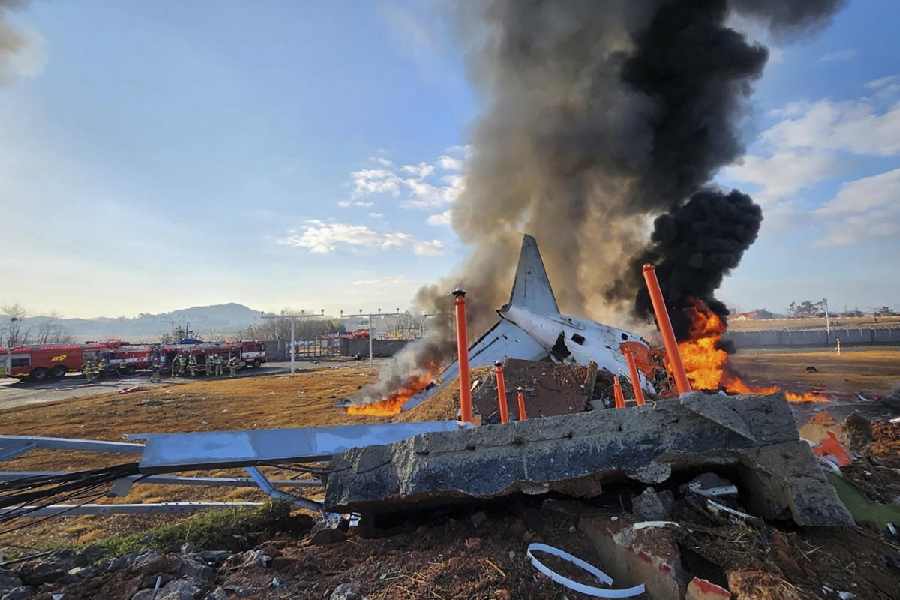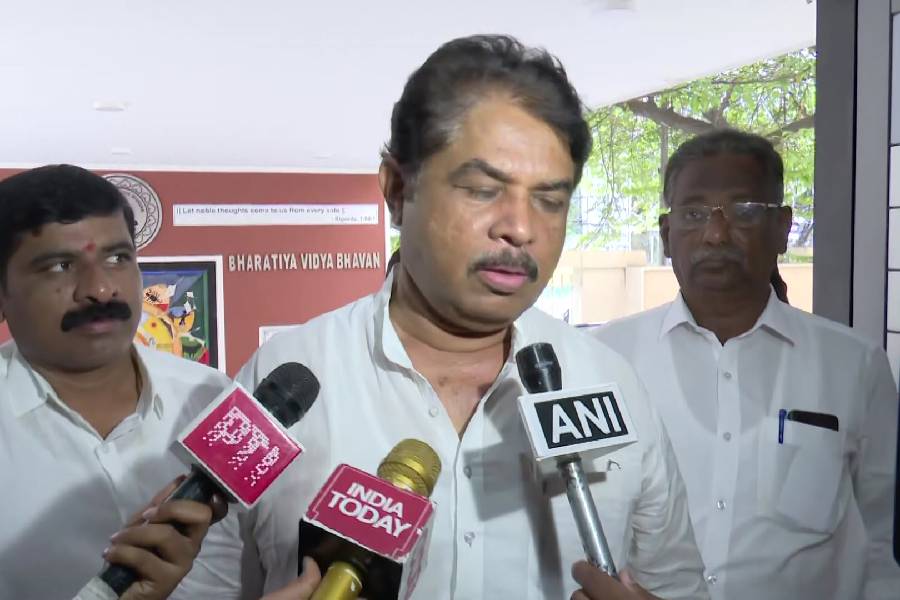Within hours of Boris Johnson announcing he was cancelling his trip to Delhi to meet Narendra Modi on April 26, India was placed on the UK’s Covid “red list” of countries.
This means Indian nationals are now banned from coming to the UK, turning India into almost a pariah state.
Putting India on the red list is also seen widely as an indictment of the government in Delhi, especially as the country has been touted as “the world’s biggest vaccine manufacturer”.
There has been mounting concern over the last few days about the Indian “double mutant” — the “B.1.617 strain” is the combination of two other mutants “E484Q and L452R” —which has been detected in the UK.
When the British Prime Minister cancelled his trip to Delhi for the second time this year — he was first invited to be chief guest at the Republic Day celebrations in January — it was a clear signal India was about to added to the red list of some 40 countries.
Most are in South America and Africa but Pakistan and Bangladesh are also on the list. Of greatest concern are the Brazilian and South African variants because of worries that vaccines may be less effective against them. Tests are being carried out on the Indian mutation which has been designated a “variant under investigation”. It could soon be upgraded to “a variant of concern”.
It is also worth remembering it was touch and go with Boris himself when he caught Covid a year ago and had to be admitted to intensive care in St Thomas’ Hospital in London.
During a visit to Gloucestershire on Monday, Boris told reporters: “Narendra Modi and I have basically come to the conclusion that, very sadly, I won’t be able to go ahead with the trip. I do think it’s only sensible to postpone, given what’s happened in India, the shape of the pandemic there.
“Countries around the world including our own have been through this. I think everybody’s got a massive amount of sympathy with India, what they’re going through.
“And I just want to stress that … we’re going to be going back, the relationship between the UK and India is of huge importance, and I’ll be talking to Narendra Modi, we’ll be trying to do as much as we can, virtually.
“Of course it will be frustrating, but we’ll try and replicate as much as we can remotely, and then look forward to doing it in person as and when circumstances allow, and hopefully before the Cop summit in November and hopefully we’ll get Narendra Modi over for the G7 in June.”
The decision to put India on the red list was announced in the Commons by the health secretary Matt Hancock, who responded to a question from Labour’s shadow health secretary Jonathan Ashworth.
“This isn’t a decision which we take lightly,” said Hancock, who said the ban on travel from India would take effect from 04:00am BST (08.30am IST) on Friday. “After studying the data and on a precautionary basis we have made the difficult but vital decision to add India to the red list.”
Anyone who has been in India for the previous 10 days is also banned from coming. UK nationals and those with residence rights can return but will have to quarantine in government designated hotels at a cost of £2,000, plus take two pre-paid tests at £200 each.
“(Mr Ashworth) is right to ask about surge testing to make sure that we limit the spread as much as is possible of the variant first found in India — and we will be doing that, I can confirm.
“India is a country I know well and love. Between our two countries we have ties of friendship and family and I understand the impact of this decision, but I hope that the House will concur that we must act because we must protect the progress that we have made in this country.”
Officials at Public Health England had recommended that ministers consider “stronger enforcement” on travel from India or “an alternative border policy” to minimise transmission of a variant of coronavirus first found in the country.
Between March 25 and April 7, 3,345 arrivals from India were registered in border travel data. Of those, 161 —or 4.8 per cent — tested positive for Covid-19 after a PCR test. Also 36 cases of the India variant were registered in travellers from India in the most recent week. Over 100 cases of the Indian variant have been detected.
Just before India was put on the red list, Danny Altmann, professor of immunology at Imperial College London, told ITV: “I am concerned about all the variants. Don’t get me wrong, I think our road map is going well and at the moment, in this country, we are doing rather well, enjoying unlocking.
“But out there, there is the Indian variant, the South African, Brazilian etc, and they do pose a threat. My assumption from everything I’ve seen is that it will become a variant of concern. When it becomes a variant of concern, I’d be quite surprised if India wasn’t on the red list.”
For days, sections of the British media have been campaigning for India to be added to the red list, supported by scientists who agreed it was safer to err on the side of caution.
Being on red list will damage UK-India trade and business and also disrupt family relationships. The Indian origin population in the UK is at least 2.5 million. Many of the NHS doctors who have been fighting the pandemic are Indian.

